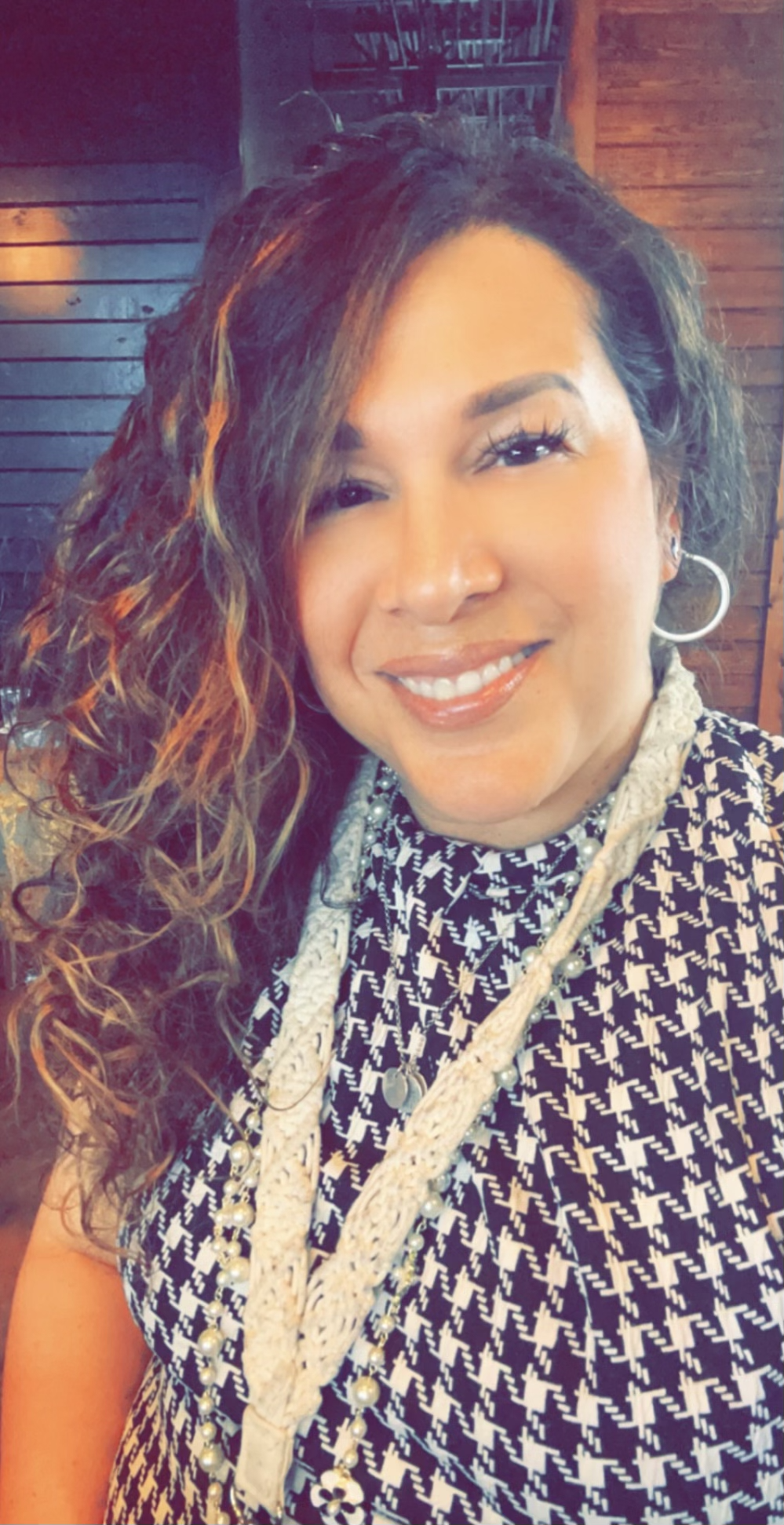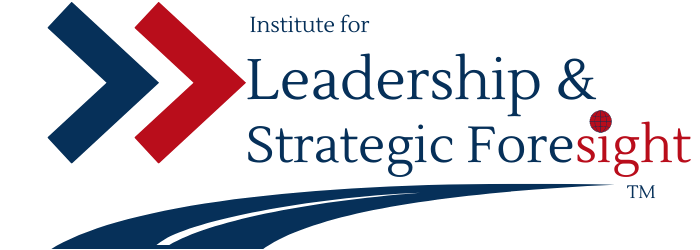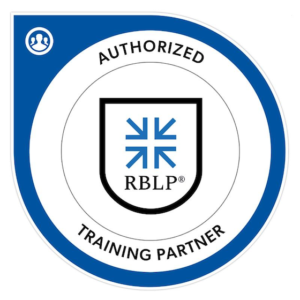Resilience-Building Leader Program
The ability to build and lead resilient teams has never been more important.
What Will You Learn To Do?
- Raise morale in the workplace by creating a positive climate for people to work in.
- Boost teamwork by developing cohesion among team members.
- Improve employee motivation and commitment by providing purpose in the workplace.
RBLP® Leadership Certification

RBLP® certification is for managers responsible for one or more team’s morale, teamwork, motivation, and commitment.
Curriculum modules 1-3
1.5-hour oral exam

How is the certificate program delivered?
- Weekly learning modules requiring student preparation and contact hours of instructor-led group discussion per module.
- Individual student preparation includes reading assignments and answering reflection questions.
- Instructor-led group discussions ensure a thorough understanding of applicable factual (what), conceptual (why), and procedural (how) knowledge.
- Instructor-led group discussions leverage your unique leader/follower experience and perspectives.
What is your investment?
- $575 for the exam prep course through the Institute for Leadership & Strategic Foresight
- Payment plans are available. Please contact [email protected] for more information and to register.
- Purchase and register for certification after you finish the prep course at https://resiliencebuildingleader.com/leadership-certifications/
The program is U.S. Military COOL approved. Please click on the link for your service for more information about COOL:
The program is also GI Bill® approved. You can find the application for reimbursement of certification test fees here.
Upcoming Workshops
9
October
Register for our next available workshop.
Location: Online
Building and Leading Resilient Teams Curriculum Modules
Create a Positive Climate
When morale is low, performance suffers. When morale is high, performance can soar. Climate is about the shared perceptions and attitudes of teammates. Your team’s climate can change quickly, for better or worse, based on your actions and the actions of teammates. You will be taught how to raise your team’s morale by creating a positive climate for people to work in. The result will be more flexibility, creativity, and openness to new ideas. Positive emotions help people cope with stress. Teams that work in a positive climate are better able to bounce back from adversity, and then adapt and grow together because of that adversity.
Create a Positive Climate Leader Tasks:
- Analyze team climate.
- Earn trust.
- Treat people with respect.
- Enforce accountability.
- Encourage people to have fun.
- Demonstrate character.
- Keep the team informed.
Develop Cohesion
The best measure of a team is how well it performs under pressure. When the going gets tough, the tough get going…by working together as a team. This maxim holds true for front-line teams, executive teams, and all other teams in between, including yours.
You will be taught how to boost teamwork by developing the cohesion of your team. The result will be more supportive and dependable relationships. Developing cohesion enhances well-being, reduces stress, and enables your team’s creativity and collective decision-making. Cohesive teams in the workplace are better able to bounce back from adversity, and then adapt and grow together because of that adversity.
Develop Cohesion Leader Tasks:
- Analyze team cohesion.
- Organize people to work in teams.
- Promote trust between team members.
- Ensure mutual respect between team members.
- Train the team.
- Manage expectations.
- Talk about setbacks.
Provide Purpose
When your people have a sense of purpose for the work that they do, they are more motivated and committed. You will be taught how to provide purpose in the workplace by challenging people to be their best. Most people are looking to grow personally and professionally. You should challenge each person on your team to learn new skills. You should challenge the team to learn new collective skills together. You can also provide purpose by helping your team understand how their work supports the organization’s mission. When people have a sense of purpose at work, they are better able to bounce back from adversity, and then adapt and grow together because of that adversity.
Provide Purpose Leader Tasks:
- Analyze individual purpose.
- Show genuine concern for people.
- Encourage individual learning.
- Delegate responsibility.
- Empower decision-making.
- Keep people focused on the mission.
- Be there when the going gets tough.
Learn More About Building and Leading Resilient Teams:
Completing this program in Building and Leading Resilient Teams satisfies the education/training requirement for level 1 of RBLP® leadership certification exams. If you are interested in sitting for a certification exam, please apply here.
The RBLP® series of certification exams are administered by the Resilience-Building Leader Program only. Completing a program of instruction does not guarantee a passing score on any exam administered by the Resilience-Building Leader Program.
“RBLP”, “Resilience-Building Leadership Professional”, “Learn More. Lead Better.”, and the RBLP shield logo are trademarks of the Resilience-Building Leader Program, Inc.
Our Instructors

Hope Skibitsky
Command Chief Master Sergeant (Ret) Hope Skibitsky is the Chief Executive Officer and Founder of Hope As A Strategy, which she initiated in December of 2022, after serving on active duty in the United States Air Force for almost 28 years. As the founder of her independent consulting, professional development, and coaching firm, she channels her fervor for nurturing the growth and development of leaders and teams across military and civilian sectors. Embodying the ethos of ‘Hope As A Strategy,’ she dedicates herself to empowering leaders and teams to realize their utmost potential through cutting-edge and influential professional development initiatives. Her work exemplifies the vision of forging a worldwide network of empowered, progressive professionals committed to instigating meaningful transformation within their organizations and industries.
She entered the United States Air Force in 1995 and graduated technical training as an Aerospace Medicine Technician. She served as a Master Military Training Instructor as well as an Air Force Career Assistance Advisor. She earned a Bachelor of Arts degree in Human Resources Management, through Ashford University, a Master Resiliency Trainer Certification through University of Pennsylvania and an Air Education and Training Command Master Instructor Certification.
During her military career, she had three overseas assignments and three deployments; she had multiple Host Wing Command Chief assignments; served as the Command Senior Enlisted Advisor for Joint Special Operations Air Component-Central as well as the Chief of Air Force Basic Military Training. Chief Skibitsky has more than 3,000 platform instruction hours and is a certified facilitator in several professional development training courses. Her passion is people.
Her Senior Enlisted Leadership duties included the 60th Inpatient Operations Squadron at Travis AFB, CA; 48th Medical Operations Squadron at RAF Lakenheath, UK; 737th Training Group at JBSA Lackland, TX; 27th Special Operations Wing at Cannon AFB, NM; 86th Airlift Wing at Ramstein AB, DE; and she completed her career as the Command Chief of Air Force Installation and Mission Support Center, at JBSA Lackland-Kelly, TX, serving all Air and Space Force Installations across the globe.
Hope is married to Justin, they have two amazing adult children and they are building their homestead in beautiful small town Texas.

Gwenell J. Price
Ms. Gwenell J. Price is a Program Manager with the Training and Professional Development branch at the Air Force Personnel Center (AFPC), Joint Base San Antonio – Randolph, Texas. Ms. Price manages the Air Force’s Functional Training program and Professional Development for AFPC and is directly responsible for a portfolio of $1,050,000. Her roles include coordinating with vendors and approximately 1,600 civilian personnel to ensure maximum utilization of career growth opportunities. Ms. Price enabled 181 training events, led 16 brown bag sessions and chairs the monthly Training Development Working Group. She is a servant leader who dedicates herself to growing and coaching others to reach their leadership goals and find their personal passion. Ms. Price also volunteers as a coach with the Better Up program for civilians currently working on Randolph AFB, Texas.
Ms. Price is a 26-year Air Force Veteran with 19 years as an Education and Training manager. She has had several roles including formal and base training manager, education services manager, base functional and various positions in workforce development. She earned a Bachelor of Arts degree in Psychology, through American Military University, a Master of Science in Organizational Development and Leadership through the University of Incarnate Word and a Coaching certification through Better Up.
Prior to her current position, Ms. Price was a Program Manager with the Department of the Army Installation Management Command, Ft Sam Houston, Texas where she was responsible for staffing Congressional actions on housing, personnel matters, and Quality of Life (QOL) for United States Department of the Army soldiers and families located across five directorates and 73 Garrisons.
Got Questions?
Visit our Office
110 East Houston St., 7th Floor, Suite 239
San Antonio, Texas, 78205

